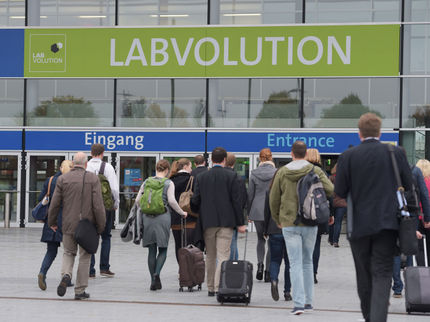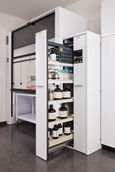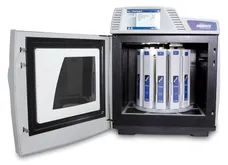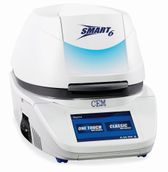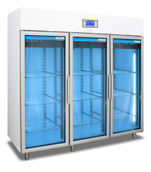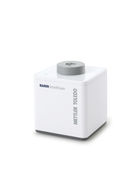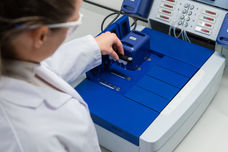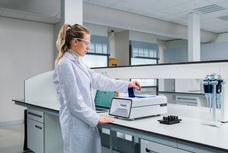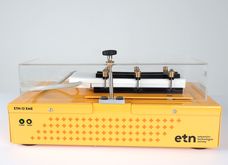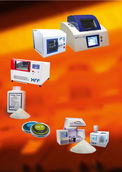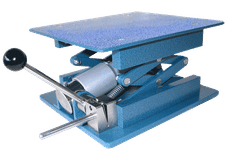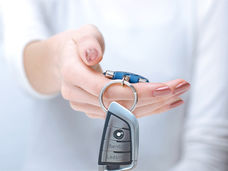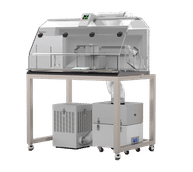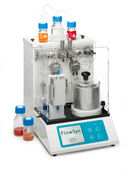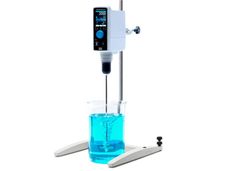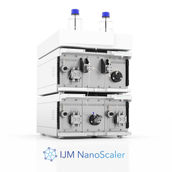The full spectrum of lab technology - in May 2017 in Hannover
Less than six months to go until the beginning of LABVOLUTION/Biotechnica 2017, and the objective is already clear: The European trade fair for the full spectrum of laboratory technology is primed to prove the aptness of its new course next spring. Following a series of far-reaching changes, the event will take place at a new time (16 to 18 May 2017), in a new hall (Hall 19/20), with a new profile. Labvolution stands for innovative laboratory equipment and the optimization of laboratory workflows. And it includes BIOTECHNICA – the established life sciences event.
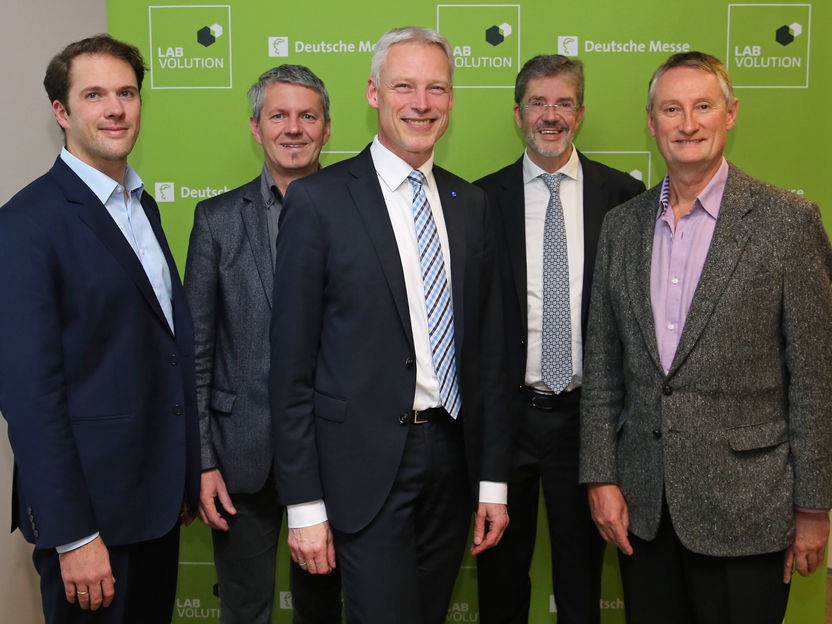
On the photo (l-r): Dr. Simon Bungers, Dr. Joachim Venus, Dr. Andreas Gruchow, Dr. Peter Quick and Ken Browne at the press conference in Stuttgart
Deutsche Messe AG
"We took a radical and courageous step in creating this new trade fair," stated Dr. Andreas Gruchow, member of the Deutsche Messe Managing Board, at a recent press conference for LABVOLUTION /BIOTECHNICA. "The essential element is that we have now become interesting to a much larger circle of industries. We are the lab platform for analytical chemistry, life sciences – including biotechnology, but also pharmaceuticals and medical technology – plus food technology and environmental technology. This applies equally to industry and research/science. The BIOTECHNICA life sciences event will continue to be an industry networking hub for anyone interested in biotechnology and the life sciences. Apart from the products and solutions on display at exhibitor stands, the following topics will be highlighted: laboratory workflows, lab automation and lab robotics, the integrated lab (Lab 4.0) as well as digitalization and big data. This new direction was underscored in the comments made by the other speakers at the LABVOLUTION/BIOTECHNICA press conference.
smartLAB sets new standards
Dr. Simon Bungers, founder and CEO of labfolder, delivered a detailed report on the second edition of the smartLAB showcase. "smartLAB will once again set new standards in the lab environment," remarked Bungers, who is also the project spokesperson. "In 2015 we showed how laboratory processes can be entirely digitally integrated beyond the boundaries of individual lab equipment; in 2017 we will demonstrate how any lab is an a position to implement this integration flexibly and above all independently."
Under the organizational supervision of the Institute for Technical Chemistry at the Leibniz University of Hannover, a total of 11 partners from industry and research will contribute to this intelligent "lab of the future" showcase next year. A special highlight will consist of live, daily use-case demonstrations from the fields of biotechnology, environmental engineering and food technology. Equipment being added to the smartLAB program for the first time in 2017 includes an interactive dispenser, a QR code scanner and a 3-D printer which works on the basis of selective laser sintering (SLS).
Conference on advantages of 3D printing
Staged parallel to LABVOLUTION, the "3-D Printing in Science" international conference organized by the British SelectBio organization will likewise focus on the topic of 3-D printing. "The application options for 3-D printing in research are growing at breakneck speed. Increasingly, people are recognizing the immense potential of 3-D printing and tissue engineering for regenerative medicine," explained Ken Browne, General Manager of SelectBio. This conference brings together many of the leading academic players in the field along with big-name representatives from a growing number of user industries and applications," he stated. The focus of the conference, which runs from 16 to 17 May in the conference area of Hall 19/20, includes cell sourcing, bioprinting, biomaterials, scaffolding, immunology and toxicology.
Life science trends in 2017: From synthetic biology to live cell imaging
Dr. Peter Quick, Vice-chairperson of the Life Science Research dept. in the VDGH association of the diagnostics industry, of which he is also an executive board member, reported on the latest trends and developments in the life sciences. "LSR companies are partners to the research industry, as we produce the products that facilitate new research findings," he stated. "As drivers of the value chain – from basic research and the myriad fields of applied research to in vitro diagnostics and personalized medicine – LSR companies develop and manufacture tools, solutions and technology platforms. The year 2017 will be influenced by synthetic biology, NGS, cell-free DNA analysis and data analytics, live cell imaging, high-resolution microscopy, cell-based real time assays, 3-D cell cultures, bispecific antibodies, MS bioanalysis and lab automation. As a result, we will continue to see the further development and refinement of laboratory environments and, by working together with the LSR companies in the VDGH diagnostics industry association, LABVOLUTION can make these trends tangible."
Industrial applications for renewable raw materials
The press conference was wrapped up by Dr. Joachim Venus, representative of the Potsdam-based Leibniz Institute for Agrarian Technology and Bioeconomics (ATB). "We are developing biomass usage strategies to promote value creation in rural areas and create the scientific foundations for a sustainable, bio-based economy," he reported. "Our research objectives are largely identical with ‘action fields' 4 and 5 of Germany's national bio-economics research strategy for 2030, consisting of the industrial use of renewable raw materials and the expansion of bio-based energy carriers. Complex biorefinery systems are increasingly capable of intensifying their utilization of byproducts in combination with primary products as well as cascading biogenic resources for a maximum exploitation of biomass," he concluded. The industrial use of renewable raw materials is a key action field in Germany's national bio-economics research strategy for 2030. One reason is that the use of renewable raw materials has a high potential for innovative new technologies and products. The ATB institute is an internationally active research center operating at the interface of biological and technological systems.
These products might interest you
See the theme worlds for related content
Topic world Digitalization in the laboratory
The topic world Digitalization in the lab presents innovations and trends from digital data systems (ELN, LIMS) to laboratory robots and networked devices (IoT) to AI and machine learning.

Topic world Digitalization in the laboratory
The topic world Digitalization in the lab presents innovations and trends from digital data systems (ELN, LIMS) to laboratory robots and networked devices (IoT) to AI and machine learning.
